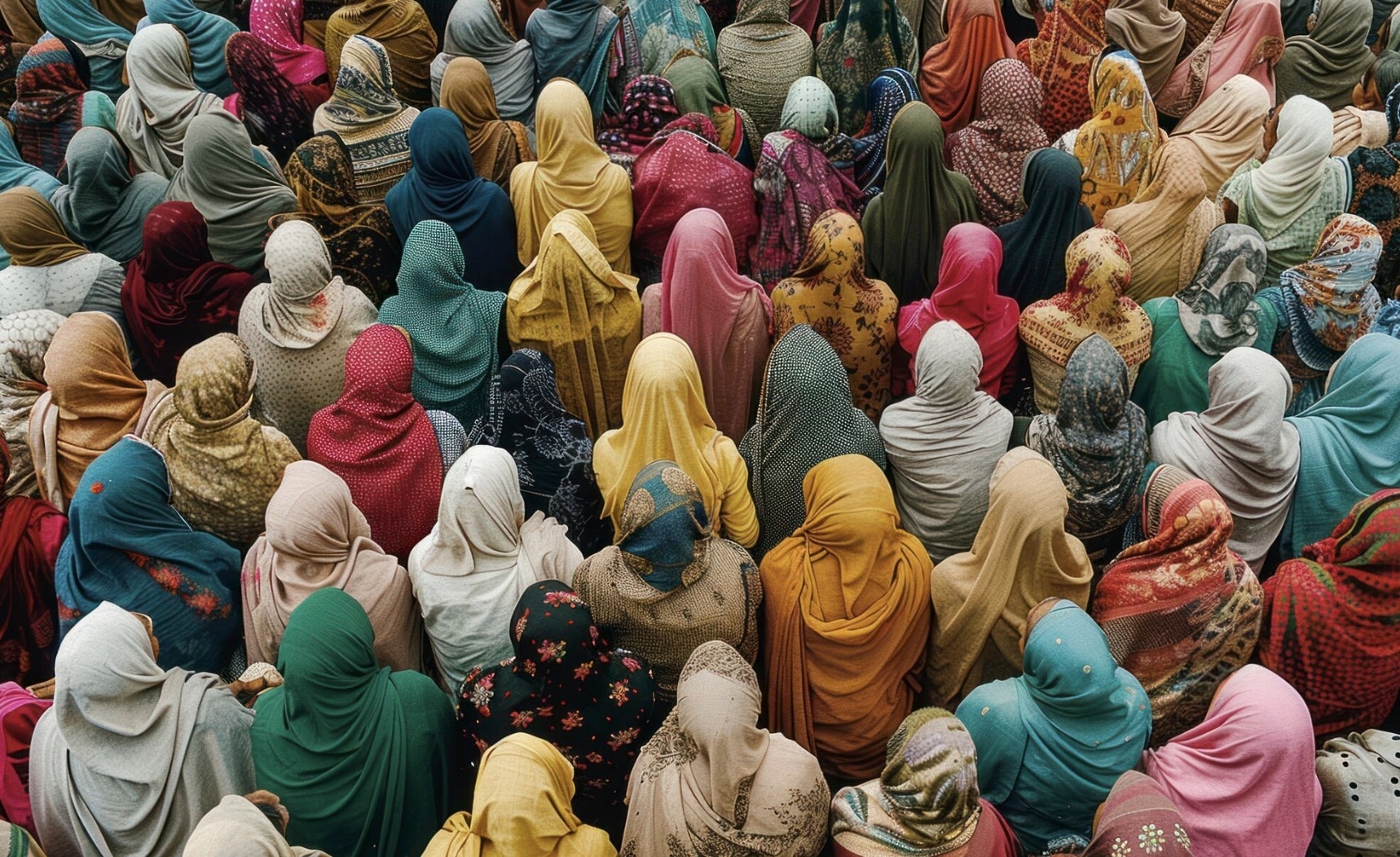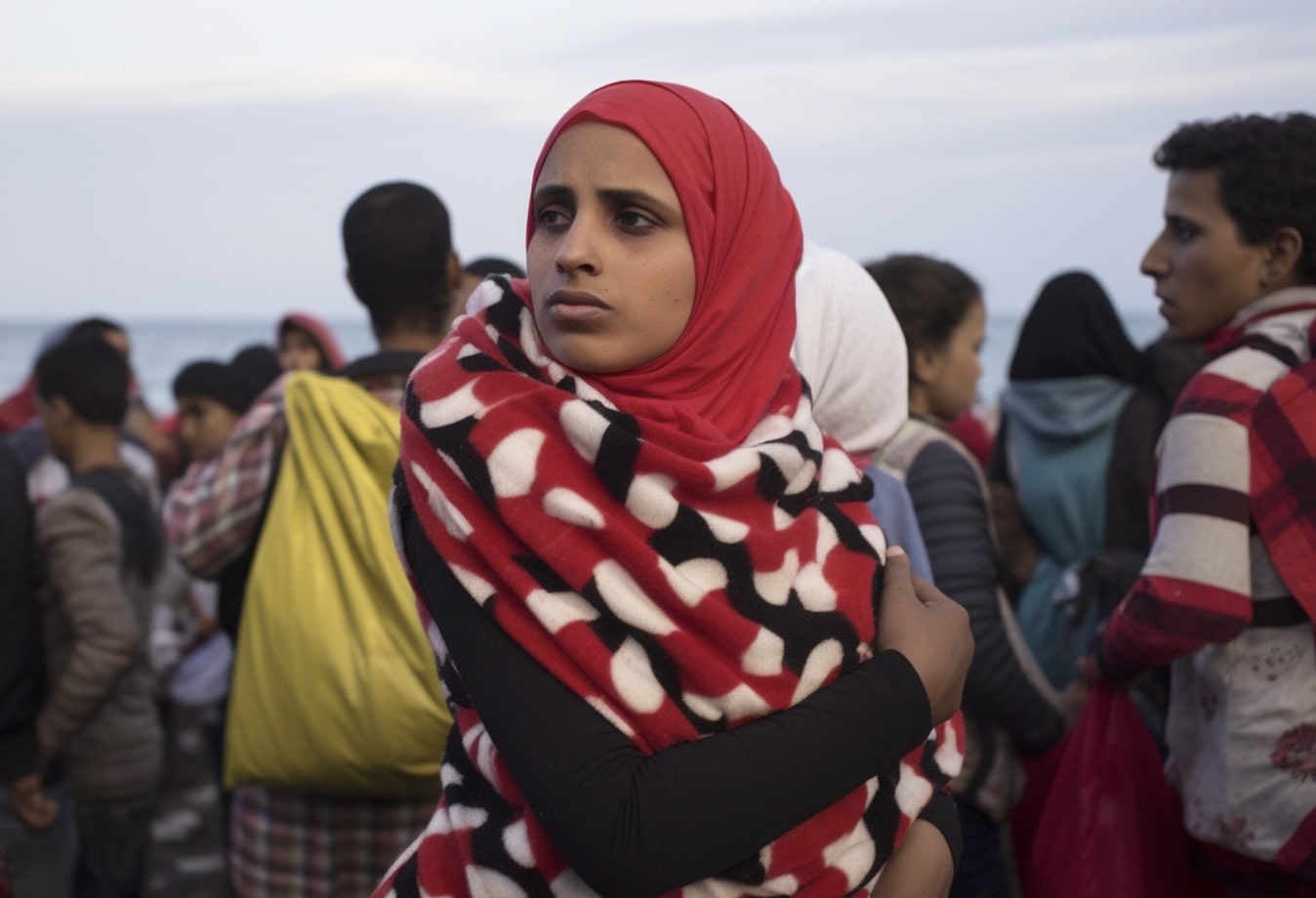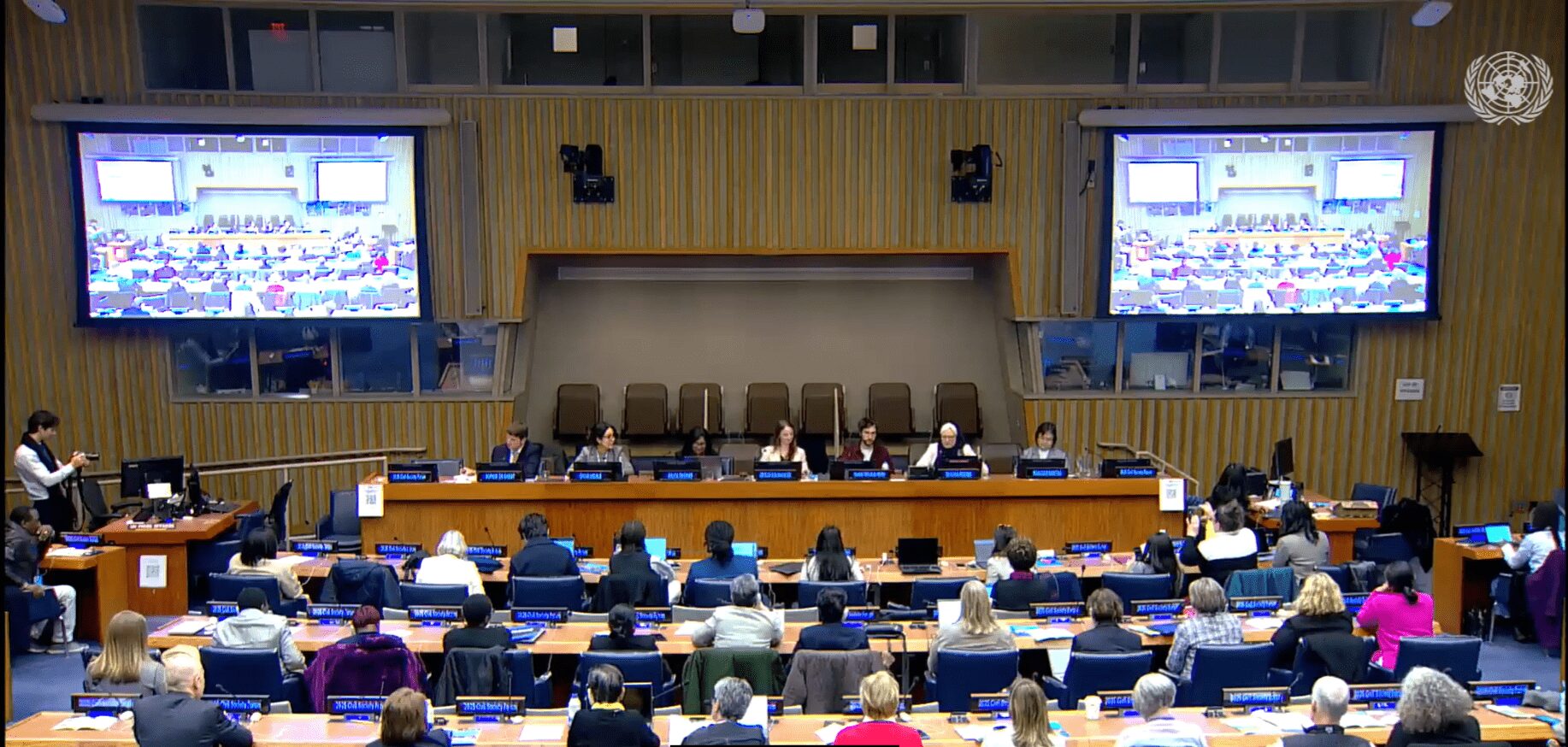
24 July 2025
By Maha Akeel
Women are among the most vulnerable groups to suffer during conflicts, yet when it is time for peace talks and agreements women are rarely involved or consulted. Women suffer in various ways during conflicts, including physically, mentally, sexually, socially and economically, but they also play an active role in conflict prevention and peacebuilding, develop strategies and initiatives to survive, and take care of their families and communities. However, during peace negotiations, women are most often either ignored completely or included at a later stage in the process as an afterthought, which limits their input and influence on outcomes.
It is important to have women as mediators and negotiators during peace-making processes to ensure that their rights, needs and expectations are reflected in the final documents. This is where third-party mediators and international organisations can play a role. In Muslim societies, where 60% of worldwide conflicts occur in countries which are members of the Organisation of Islamic Cooperation (OIC), it becomes even more necessary to include women, not only because they are disproportionately affected by violence but also because they face entrenched patriarchal and cultural barriers to having their voices heard. Most often Islam itself is conceived as a factor in these conflicts, whether as a cause or a motive, and when it comes to women, Islam is seen as the reason for their oppression and the cause for marginalising women during peace processes. What should be emphasised when persuading those who oppose including women or assume that Islam oppresses women is that women were consulted and involved in resolving conflicts and negotiating peace since the time of Prophet Mohamed in the 7 th century.
A critical point in gender inclusivity in peace negotiations is to lead by example through having women in mediation, which remains very low. According to the 2024 UN Secretary General’s report to the Security Council on Women, Peace and Security, there has been a lack of overall progress on women’s full, equal and meaningful participation in peace processes. Data from the Women in Peace Processes Monitor of over 50 processes indicate that in 2023, on average, women made up only 9.6% of negotiators, 13.7% of mediators and 26.6% of signatories to peace agreements and ceasefire agreements. None of the peace agreements reached in 2023 included a women’s group or representative as a signatory.
At the OIC, not only is its mediation apparatus weak structurally and lacking financial and human resources, which limits its involvement and impact in peace processes, but the role of women is almost nonexistent. The OIC peace and security architecture, which was an ad hoc process until it began to take form in 2014, consists of four major components: the Peace, Security and Conflict Resolution Unit (PSCU), the Wise Persons Council, the Special Envoys of the Secretary-General, and three initiatives by member states: Islamic Rapprochement, the OIC Contact Group on Peace and Conflict Resolution, and the OIC Contact Group of Friends of Mediation. No woman has been appointed as head or member of the PSCU, or among the Wise Persons Council or Special Envoys, except for one female Special Envoy for Africa in 2020.
Different experiences of women and men in conflict zones
The experiences of men and women during conflict differ as do their needs and perspectives, and therefore all need to be included when it is time to make peace. While women’s suffering during conflicts is recognised and highlighted, the same consideration is not given to their role and initiative in peacebuilding and peacemaking. Depicting women as mainly victims of conflict and not as agents of change undermines their role in conflict resolution and limits their involvement to addressing only their grievances and not their contributions. Such a blinkered approach towards women leads to their greater impoverishment, marginalisation and discrimination.
This is a responsibility for the media as well in its role of creating public awareness about these injustices and motivating support. Unfortunately, there is a lack of such media coverage. A recent study by CARE showed that while media coverage about conflict increased more than sixfold between 2013 and 2023, only 5% of the coverage focused on women’s experiences in war, and only 0.04% of articles published about armed conflict in that period mention women’s contributions as leaders.
During conflicts women take on added and new responsibilities, often becoming the head of the household and breadwinner with more decision-making roles and independence that in turn challenge their traditional role in society and make them vulnerable. For example, the restrictions imposed on women’s and girls’ education, freedom of movement, and work outside the home in Afghanistan, Yemen and other places forced women to resort not only to home-based income- generating activities and makeshift schools but also to begging and coerced prostitution. These conditions also limited the women’s and girls’ ability to access health care and humanitarian aid and relief.
In addition to being half of every community and central caretakers of families, women play an important role as advocates for peace, peacekeepers, relief workers and mediators, whether in formal or informal structures and community work. The recent report by CARE found that 91% of women surveyed in 15 countries experiencing conflict, including Afghanistan, Mali, Palestine, Sudan and Syria, are taking active, leading roles to support and uplift their communities. They provide meals and shelter to those fleeing their homes, 79% of them find ways to make communities safer, 71% provide health services and 46% diversify incomes to care for their families.
Including women at the negotiation table is important to have their voices heard, rather than trusting or depending on national actors fighting for power to speak on their behalf. The peace discussions, arrangements and constitutions that result from the negotiations shape the future of society and therefore have a direct impact on women’s lives. Ensuring that women’s rights, needs and expectations are reflected in the texts adopted lays the groundwork for their political participation and social empowerment. Furthermore, including only the parties that were involved in combat – who might lack legitimacy and do not necessarily represent the interests of the whole community – while excluding those who were advocating peace sends the wrong message about who has the right to represent and speak on behalf of society. The backing of the international community in supporting women’s lobbying for inclusion is important in this regard but it needs to be deftly managed to ensure local support, continuity and implementation.
Women not only bring different experiences of war from men’s but also different perspectives. Most often, through their informal networks and grassroots activism, women are able to bridge ethnic, cultural and religious divides, such as in Iraq, Nigeria and Somalia. Furthermore, in negotiations, men tend to focus on negative peace – the ceasefire and cessation of violence – while women focus on positive peace – the restoration of good relationships and quality of life. Also, men and women have different understandings of peace. For men, it is mainly about the institutions and the public realm, while for women it is the individual, the family, and community rights and security in the private realm.
By bringing in their views and experiences, women help identify and address different sources of conflict and the means to resolve them. Moreover, the likelihood of the successful implementation of a peace agreement is strengthened by women’s direct and active participation in the drafting of it, because they feel empowered to remain engaged in the implementation and peacebuilding.
The role of women’s organisations
Women-run organisations, including women faith-based mediators, are found to enjoy higher trust levels in their communities and can therefore play an important role in formulating and implementing strategies to address various issues and rebuild society. Effective engagement of women and civil society in peace processes in Indonesia, Uganda, Somalia, and Sierra Leone has yielded positive results. Actions and policies for empowering women and promoting gender equality during and post conflict must be locally driven, taking into consideration ethnic, religious and economic divisions, and building the capacity of and supporting local women’s organisations rather than merely giving them programmes to implement. Unfortunately, most often the voices of local women activists are not listened to by international organisations and INGO funders because they are only expected to implement services and not contribute to policies or how the funds are spent. Furthermore, women’s human rights defenders and civil society organisations on the frontline of crises are too often under attack themselves and are extremely underfunded.
The UN’s engagement in and support for political and civil society women leaders in and outside Syria and Lebanon has enabled these leaders to contribute to the positive outcomes in reconciliation, peacemaking and rebuilding their countries through inclusion and collaboration. The constructive efforts of women faith-based mediators in Iraq, Syria, Nigeria and other places in preventing, mitigating and resolving conflicts are well documented.
It remains the responsibility of international organisations and policy makers to incorporate the priorities and interests expressed by women civil society actors, women peacebuilders and women mediators who are active at the local level. Supporting and enhancing the capacity of women-led organisations and mediator networks is also important as is including women in peace negotiations early on in the process.
Author
Maha Akeel worked at the intergovernmental Organization of Islamic Cooperation as the first professional woman to work there and the first female to hold a leadership position as Director of Communications and later as Director of Social Affairs. She is currently a lecturer in the Department of International Relations at Dar Al Hekma University, Jeddah, Saudi Arabia. She holds an MA in Communications Studies from the University of Calgary, Canada and an MA in Gender in Global Politics from SOAS, University of London.


